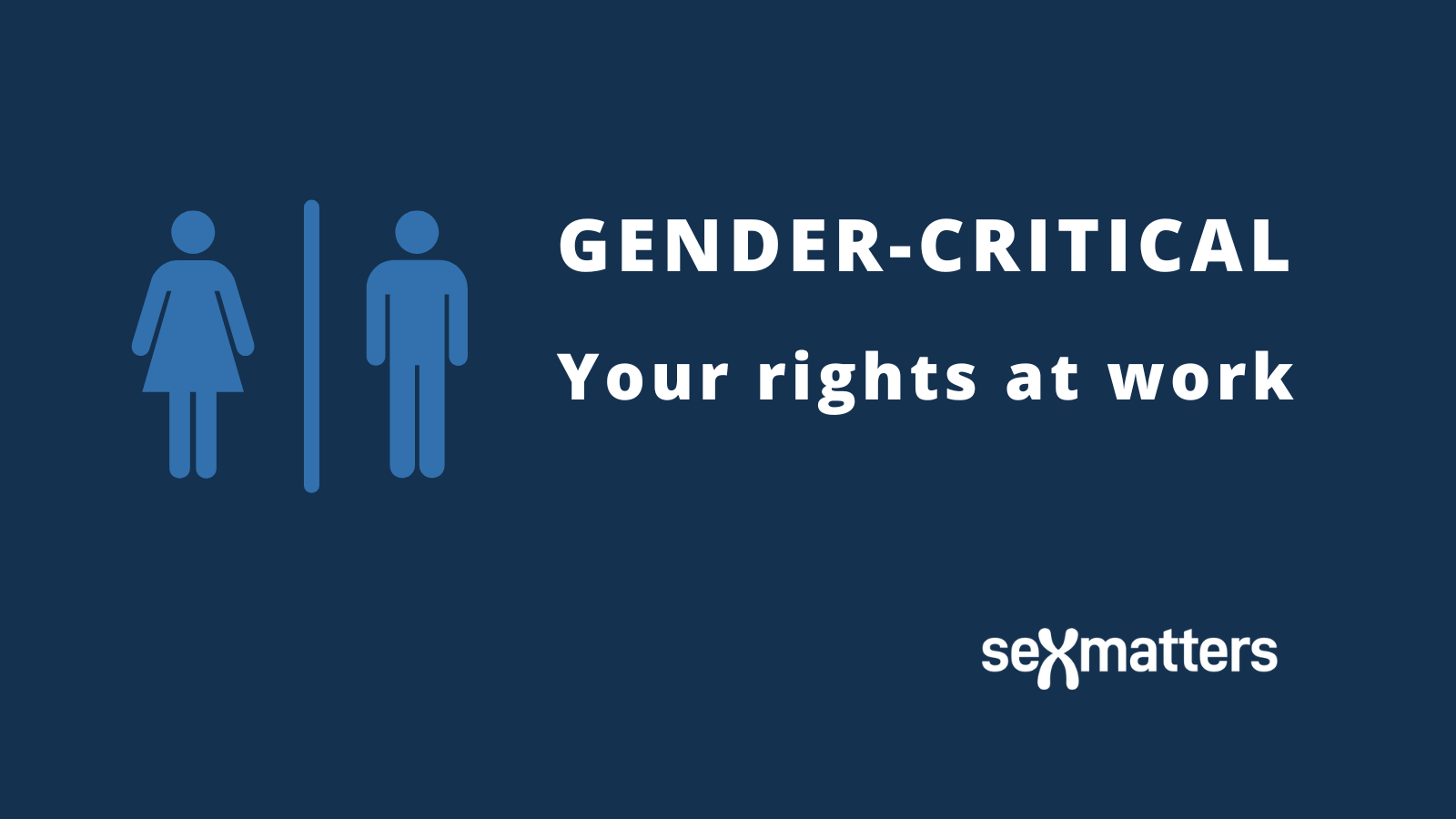Your rights at work
The Equality Act 2010 protects people in England, Scotland and Wales from being discriminated against at work because they have gender-critical beliefs.

What are gender-critical beliefs?
Gender-critical beliefs are quite ordinary beliefs about the two sexes. If you believe that people are born male or female and grow up to be men or women and that laws, rules and policies that reflect this remain important, then you are “gender-critical”.
This is sometimes summarised as saying sex is binary, immutable and important.
People who are gender-critical do not believe that “trans women are women” or that “trans men are men”. This does not mean they want to harm people who identify as transgender.
How does the Equality Act protect you?
The Equality Act 2010 protects people against four types of belief discrimination:
- Direct discrimination is when someone treats you worse than another person in a similar situation because of your belief. For example: an employer refuses to employ you because you have expressed gender-critical views online.
- Indirect discrimination is when an organisation has a policy or way of working that applies to everyone, but which puts you at a disadvantage because of your belief. For example: an employer does not provide changing, washing or toilet facilities that offer adequate privacy from members of the opposite sex.
Indirect discrimination may be permissible, but the organisation or employer must be able to show that the policy or way of working is necessary for the way the business operates. - Harassment occurs in the workplace when someone makes you feel humiliated, offended or degraded. Harassment can never be justified. If your employer trains or encourages colleagues to call people with gender critical beliefs “TERFs”, transphobes or bigots, this is likely to be harassment.
- Victimisation happens when you are treated badly because of any “protected act” you do in relation to belief discrimination under the Equality Act. For example raising concerns about harassment and discrimination related to gender critical beliefs.
These protections also apply to lack of belief, so for example your employer should not treat you less favourably because you do not believe in gender identity, and decline to “state your pronouns” or call yourself “cis”.
What should you do if you are facing discrimination or harassment?
If your employer discriminates against you because of your beliefs, or allows people to harass you, there are three things you can do:
- complain informally
- raise a grievance using your organisation’s grievance procedures
- make a claim to the Employment Tribunal
You can try each in turn, or you can stop at any point. Similarly, you can follow the same sequence if you are being discriminated against in education, as a service user or as a member of a trade union, club or association.
Resources
Sex Matters leaflet
Frequently asked questions
Got more questions? Select your own questions to make a customised briefing with all the answers.
Other resources
Has the EAT’s decision in Forstater brought any light to the heated debate on the subject of sex and gender in the workplace, by Akua Reindorf, Employment Law Association, BRIEFING Vol. 28 No. 7
Forstater: effective protections for gender critical beliefs at work, By Peter Daly and Louise Donaldson, Employment Law Association, BRIEFING September/October 2022
Belief and Manifestation of Belief in a Social Media World, webinar by Ben Cooper KC, by the Employment Lawyers Association and Employment Law Bar Association.
